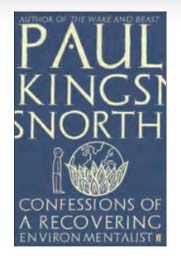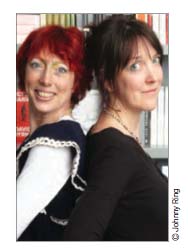Mari Vindis rounds-up the best of Cambridge Literary Festival 2017
Not content with one annual outing, The Cambridge Literary Festival has popped up twice a year since 2003. It has a broad reach welcoming diversity in its authors as well as scientists, entertainers, editors, poets – even a large children’s programme. I went along last month (18-23 April) where there was a veritable smorgasbord of literary delicacies to chew or nibble on, depending on your appetite. Paul Kingsworth, author of Confessions of a Recovering Environmentalist certainly provided substantial food for thought, as his vision of the future unfurled. It seems the human race is hell bent on destruction through our inability to concede our current lifestyles. He warned “by 2050 there would be more plastic in the sea than fish.” The modern mantra is “sustainability” but what does that actually entail? According to Kingsworth this means to carry on as normal but make environmentally aware lifestyle choices such as recycling or using public transport. Most of us are simply not prepared to give up our current comfortable western lifestyles of consumerism. We don’t have the time, opportunity or inclination to become totally self-sufficient because there is no need to. We live in a twenty-four hour society where shopping, eating and drinking afforded by urban living or the Internet is our natural world. The ‘other’ natural world of the countryside and coastline serves to physically sustain us, not the other way round.
 It was when Kingsworth finally accepted that no matter what we do to try to cut climate change, it is too late. “Humans avoid looking at the huge scale of destruction” he said and realised that nothing can be done to stop it. “Climate change cannot be turned around,” and he read an extract from his book:
It was when Kingsworth finally accepted that no matter what we do to try to cut climate change, it is too late. “Humans avoid looking at the huge scale of destruction” he said and realised that nothing can be done to stop it. “Climate change cannot be turned around,” and he read an extract from his book:
“We alter the atmospheric makeup of the entire world: half of us pretend it’s not happening, the other half immediately start looking for new machines that will reverse it. This is how empires work, particularly when they have started to decay. Denial, displacement, anger, fear.”
Over time he began to realise that no matter how loud he or others shouted about the damaging effects of climate change, disillusionment set in. He felt he was “banging his head against a brick wall.” So he looked at himself and the “hypocrisy” of his western lifestyle, and made the decision to move to rural Ireland with his wife and young children. They live as sustainably as possible with no mains electricity in a modest house on a two-acre plot of land, grow their own food, have a compost loo and fuel for the house is supplied from their own land. Despite his grim vision of the future he does not give up hope, “the end of the world as we know it is not the end of the world.” Amen to that.
 In contrast, a diverting talk by Ella Bethoud and Susan Elderkin, authors of The Novel Cure, offers an alternative treatment for physical or emotional maladies. They are “Bibliotherapists” whereby they suggest the reading of fiction as a healing experience. Bethoud explained that we all have favourite books and often recommend or lend them to friends. We become engrossed in the characters and their dilemmas and dreams and sometimes they can “even change your life” she said, as they offer insights and awareness into our own situations. For instance, the recommendation for someone suffering from homesickness is the graphic novel, “Arrival” by Shaun Tan, a beautifully poignant story of immigration. Just in case you are having a bad day, and thinking about murdering your boss/spouse/tutor, Elderkin suggested “Therese Raquin” by Emile Zola (and we all know what happened there….)
In contrast, a diverting talk by Ella Bethoud and Susan Elderkin, authors of The Novel Cure, offers an alternative treatment for physical or emotional maladies. They are “Bibliotherapists” whereby they suggest the reading of fiction as a healing experience. Bethoud explained that we all have favourite books and often recommend or lend them to friends. We become engrossed in the characters and their dilemmas and dreams and sometimes they can “even change your life” she said, as they offer insights and awareness into our own situations. For instance, the recommendation for someone suffering from homesickness is the graphic novel, “Arrival” by Shaun Tan, a beautifully poignant story of immigration. Just in case you are having a bad day, and thinking about murdering your boss/spouse/tutor, Elderkin suggested “Therese Raquin” by Emile Zola (and we all know what happened there….)
They offer a bespoke service by way of a questionnaire and interview, then make up to six novel recommendations based on a more rounded interrogation of a person’s problems, and indeed on their reading habits. I had a bit of a go of it myself but worked the other way round – I thought of books I had read and what kind of issues they might help people with. Here is a sample: Applegate Yard by Louise Doughty – contemplating infidelity; Cesil Beach by Ian McKewan – saving oneself for marriage; Rebecca by Daphne du Maurier – living with a murderer; Life of Pi by Yan Martel – considering cruising? I’m sure you can come up with your own list.
Then it was onto historical moments – in fact fifty years since the decriminalisation of homosexuality in the UK – a talk given by Andrew Solomon, lecturer and author of award-wining Far from the Tree and American journalist Paul Flynn. They called it “fifty years of progress”. The two men drew attention to moments that added weight to the movement of acceptance of LGBT’s and the challenges that now face them in light of a changing socio-political world. Flynn said it takes just “one piece of culture to wheedle its way into oppression so well, that changes can happen.” For instance, even though Boy George was not “out” as a homosexual, his very presence in the mainstream music scene helped the cultural shift. The first gay kiss on shown on TV was in Eastenders in 1987. It caused a furore in the tabloid press at the time, but it played an important part in the development of TV reflecting what was going on in real life.
It was when the same sex marriage bill was going through the UK government, said Flynn “and the symbolism of the statute as the end of the struggle and the beginning of something new.” Prior to this time he said “I felt as if I lived outside the law.” He added that their goal is “mainstream assimilation of gay culture” and “to marry and raise families”. Both believed the Internet has been crucial in the progressing of LGBT issues. Solomon said “the digital age acts as a global community for gays.” Flynn added “A sixteen-year-old boy is no longer isolated or alone with no one to talk to. He remarked that “the democratising of the Internet stops the imperialism of exporting western acceptance of gay culture through TV shows and literature.” Solomon said, “Progress would be indifference to homosexuality, and accepted to such an extent that it wasn’t even worth mentioning.” Flynn added, “Real progress would be the fist US gay president.” Now hold that thought.
Finally it was onto a head shaking in incredulity talk by Lenning Gooding from Virago publishers, talking to Frances Weetman, Pippa Malmgren and Helen Lewis, entitled Where are all the Women? Weetman was the recipient of the Virago inaugural prize created to identity, encourage and promote women writers in economics and politics. Weetman’s topic was ‘Economics is a Religion: Now it Needs its Reformation.” Malmgren, an economics analyst, said that women are vastly underrepresented in the patriarchal world of finance and politics, calling it a ‘priesthood’. She worked in George Bush’s administration and is currently a government advisor on Brexit. She compared the “rituals of the priesthood” as “very competitive, like a boxing match.” Lewis added, “Men are facilitated to be professional intellectuals” as the women, (usually wives) attend to “the administration of life”. I know exactly what she means; I could do so much more studying and writing if I had an assistant to deal with my own administration of life.
“Economics is just not considered a career by many women”, said Lewis, Deputy Editor of The New Statesman, adding that “the stereotype of a person studying it is cold and rational” and a “subject for a manly man.” This despite the fact that “women outnumber men at university but only a third go on to do doctoral degrees.” Virago is hoping that the establishment of this prize is one way of recognising and advancing the contribution that women make to economic and/or political studies. You don’t have to be a feminist to recognise that gender inequality still exists by very virtue of the fact that prizes such as this are needed in the first place. You never hear of an academic prize being awarded solely for men’s achievements.
The Festival’s second outing this year will be 25-26 November.
